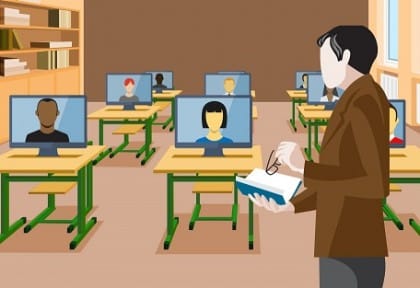What will our children need to learn to negotiate an unpredictable global future?
With the pace of change accelerating, it may be time to reimagine the curriculum. In a world of instability and unpredictability, questions must be asked about what is taught and learnt, and what would be required if everything we knew was broken down or lost. The starting point must be what kind of thinking and skills would be required to negotiate or manage in a world when problems are new or even unimagined, where disruption and discontinuity is the new norm.

The purpose of engaging in this type of thinking is to inquire deeply into whether we are educating students for the sort of world that they will face sooner than later.
As an exercise in imagination, it is interesting to ask what is most valued. There would be different things that people may value given the scenario, but consider the following as possible inclusions.
Human rights
As a basic premise of education, all children at all levels should be explicitly educated in their human rights. They must be able to articulate their rights. Such rights include the right to be free of arbitrary abuse by the state, the right to freedom of speech, the right to take part in government and the right to freedom of religion. Of course, education in such rights would also require an understanding of age-appropriate responsibilities. In this way, an understanding of rights would be tempered by an understanding that others have rights, and living in communities and societies carries certain responsibilities. This balance must be found as the unfettered expression of individual rights does not display care, gentleness or that the greatest personal freedom is found when behaving within certain limits.
Critical thinking and scepticism, cause and effect thinking

The capacity to understand the implications of ideas and ideologies is essential to understanding the contemporary world. Deep thinking requires appreciation of cause and effect. It means that students should be taught how to extrapolate the particular to the general. Taken further, such thinking will also question whether an exception should become a rule. This would be consistent with Gandhi’s notion that, “In every situation there is always a right thing to do, even if no-one does it.”
Scepticism and critique should inform understanding, and repeated ‘whys’ may be needed if ‘wise’ is sought. However, balance again must feature here as evidence-informed datasets should not be labelled ‘fake news’ or ‘alternative facts’ simply because such evidence may be disconcerting or mean that solutions to problems are complicated.
Research skills and fact-finding abilities
Closely embedded in critical thinking is the ability to research beyond a single source of ‘newsfeed’ so that differing versions or interpretations of one issue are sourced when informing and forming opinions. This is a critical skill given that aggregating technologies provide people with information that they want to hear rather than information that could improve their thinking, inform their ideas and opinions, and shape enlightened public opinion.

Perspectives
Building maturity in a world of disruption means taking perspectives with a view to understanding different stakeholders’ interests, different value sets and vulnerabilities. All students should be able to argue against their own beliefs in order to better understand conflicting perspectives, respect for others and the factors that inform another’s agenda.
Creative thinking and problem solving
Faced with disruption and discontinuity, creativity and the capacity to solve problems are essential. Creative thinking can be tricky and scary for those who want to be told what to do, like the idea of defined answers and are afraid to take risks for fear of failure. Nevertheless, the capacity to allow far-fetched alternatives to be considered, and the ability to think, free from constraint, so that possibilities are not dismissed too early are necessary in times of rapid change. Embracing creativity brings forth the possibility to solve problems in a way that is novel and adaptive.

A study of character
Interpersonal skills and intrapersonal skills are valued in all curricula. The understanding of humans and motive can be gleaned from a close study of character. Impulse, motivation, desires, tendencies, competing pressures and trade-offs, and how these manifest in the use of power, position and influence are very important to navigating a changing world. Ostensibly the place for this may be in a study of history or English, but it also informs the social sciences, politics, business, economic decision-making and a host of other influences that directly affect students and their lives.
A study of character has been a feature of human society for millennia and was often taught through story, legend, myth, fables, songs and poems.
Strength in the face of adversity

Adapting in times of change requires strength when circumstances collude to make people feel uneasy or uncertain. As such, strength builds fortitude and comes from physical ability and discipline, as well as the ability to concentrate, test the mind and focus. These attributes have been lost in the technological age and students are more flighty and impulsive, more distractible and anxious than in prior times.
To this list, other things could be added, such as strong literacy and numeracy skills as a means of enabling higher order thinking and expression. This is assumed – as is an essential belief that education can truly empower, regardless of the circumstances.



